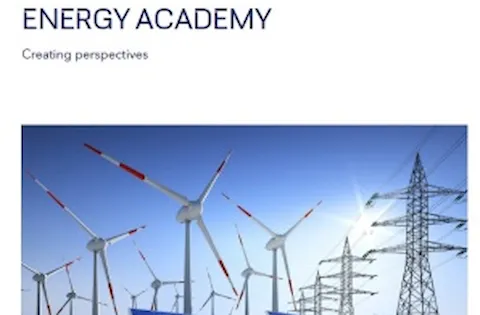Advanced Insight into the Overall Lifespan of Power Cables training course leaflet
This three-day training course focuses on fundamentals of power cables, ageing, degradation mechanisms, tests during production, lifetime and post-installation, failures and failure investigation of power cables and their accessories - all within the context of, and linking to, quality assurance.
This is an in-depth 3-day training course that will cover knowledge on power cables as well as ageing, quality assurance, testing, diagnostics and failures associated with power cables.
Detailed descriptions of the sections/topics covered in the course are as follows:
Design parameters: The section covers the theory relevant to power cables and its practical implications including electric fields, capacity, cable losses etc. Topics such as transmission line models and the skin effect are also covered.
Cable manufacture: An overview of the factory, how cables are manufactured and what are the implications of this in terms of use.
Cable installation: The installation of cables itself pre-determines many future conditions. In view of the extended life of cables, a detailed study of the installation and everything connected with it such as special placements, overvoltage, connections, current load, grounding, cross-bonding etc is called for. The current load is particularly discussed in a coherent context.
Materials & Types of cables: The properties of the most common insulation materials (paper and extruded materials) and their influence on the performance of the cable will be discussed in this course. In addition, the cable types currently in use will be discussed. Furthermore, specialized cable types such as submarine cables, HVDC cables and superconducting cables are also discussed.
Ageing: This course covers the ageing mechanisms that apply to cables, joints & terminations, the physical phenomena and the influence of the surroundings and temperatures. The causes of faults are also discussed.
Cable joints and terminations: In this part of the course, cable joints and terminations are covered in detail as well as the full range of existing technologies and their vulnerabilities.
Testing Cables during the manufacturing phase: This course extensively addresses the various types of tests conducted to complete the design and production phases. This is inclusive of pre-qualification testing (for high-voltage cables), type test and special and routine tests. Furthermore, attention will be devoted to standardization (current standards and norms), certification and the interrelationship with quality systems. This will not just be limited to summarizing the facts; their necessity and effectiveness will also be discussed.
Testing of cables during the operation phase: This section provides an extensive overview of various tests that can be conducted in the field. The acceptance tests and various forms of diagnostic testing are discussed. This subject matter is subdivided into potentially destructive and completely non-destructive testing and into off-line and on-line testing. The value of these tests and the way these tests should be applied will be covered. In addition, fault locations will be addressed.
Cause of failures: The course will explain how various components can fail and the possible underlying cause. This material will be put in a broad context, looking not only at the purely physical degradation but also other reasons such as the training level of installers, misunderstandings during installation work, defects in type and acceptance tests etc.
Degradation mechanisms: Under this section, several typical degradation mechanisms will be covered. An introduction will be provided for the less known intrinsic and thermal breakdowns and the degradation of paper insulation due to heating and moisture, the partial discharge and electric tree formation phenomenon and the water tree phenomenon in cables insulated using extruded materials will be dealt with extensively.
Failure analysis: A failure analysis can help understand the background to a failure as a means of preventing recurrence. Therefore, in this course, an explanation of how to conduct a failure analysis and everything involved for the same will be provided.
Asset Management: The course reviews the possibility of improving the use of cables by thermally monitoring them using temperature sensing fiber optics and it also teaches how the residual life of cable systems can be identified, with due considerations to the available diagnostic technologies. In all instances, the technical, economic and strategic aspects of the available technology and solutions are covered.


